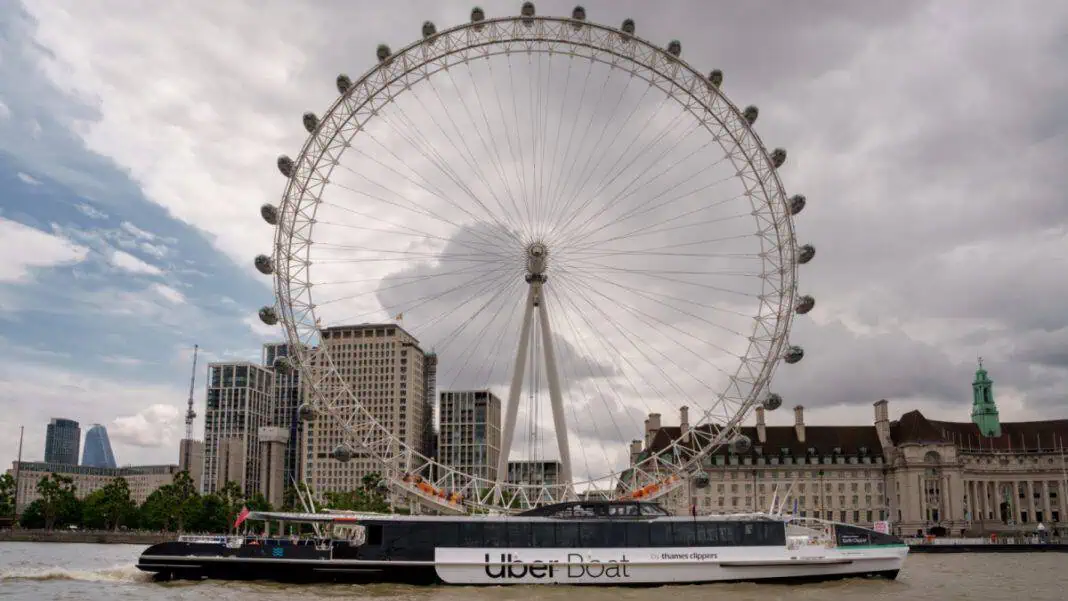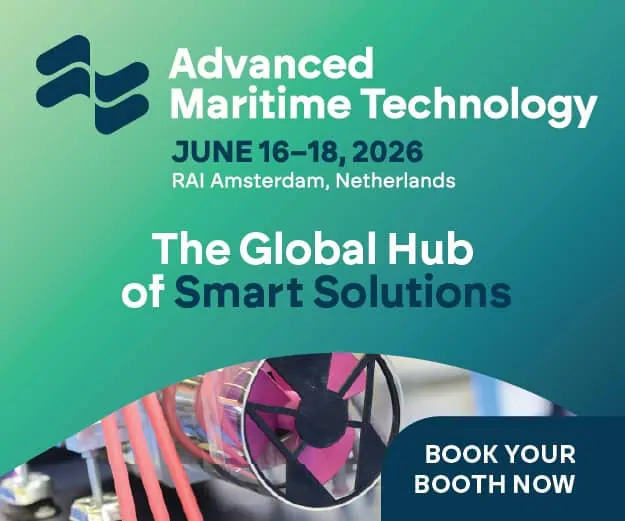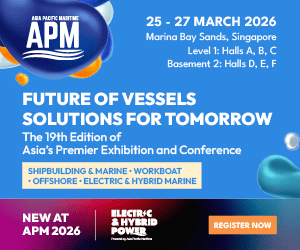From today, sightseers and commuters in London can make more eco-friendly journeys. Earth Clipper, Europe’s first hybrid high speed passenger ferry, built to the High-Speed Craft Code, and the first of three new Uber Boat by Thames Clippers passenger ferries to operate with zero tailpipe emissions in Central London, starts sailing.
Leading the way in passenger boat design, Earth Clipper gives an almost 90 per cent reduction in CO2e compared with running solely on conventional marine diesel. The 18th high-speed catamaran in the Uber Boat by Thames Clippers fleet takes strides in improving the ambitious sustainability credentials of the business while also laying strong groundwork for the wider marine sector.
The hybrid boat will operate solely on battery power while transporting commuters and sightseers through the Capital – in the Central Zone, between Tower and Battersea Power Station piers – and recharge while using biofuelled power outside of central London. Offering an emissions reduction of 16.5 per cent when compared with running on biofuel alone throughout all parts of the route.
As well as being the first hybrid boat for the business, it is also its largest at 40m long – almost the length of two tennis courts laid end to end – and has a capacity of 230 passengers. Earth Clipper has also been designed for optimum passenger experience with the cabin featuring large windows which look out onto the iconic views along the Thames and offers the onboard café service that Uber Boat by Thames Clippers passengers know and love.
“This is a momentous day for us, and something we’ve been working towards for some time” says Sean Collins, Uber Boat by Thames Clippers co-founder and CEO, “Being able to offer greener transport through the capital is no small feat but something we’re incredibly passionate about at Uber Boat by Thames Clippers.”
“We are committed to not only utilising the most advanced technology to drive down our carbon footprint, but also to playing our part in breaking new ground to advance that technology as much as we can. The new boats push the boundaries in catamaran design to deliver a future-friendly option that can be made even greener as and when technology allows. We’re excited to announce too, that Earth Clipper will be joined by two sister vessels; Celestial and Mars Clipper will also join the fleet this year as we work towards our targets of reducing carbon emissions by 50 per cent by 2030 and achieving net zero by 2040 for the overall business.”
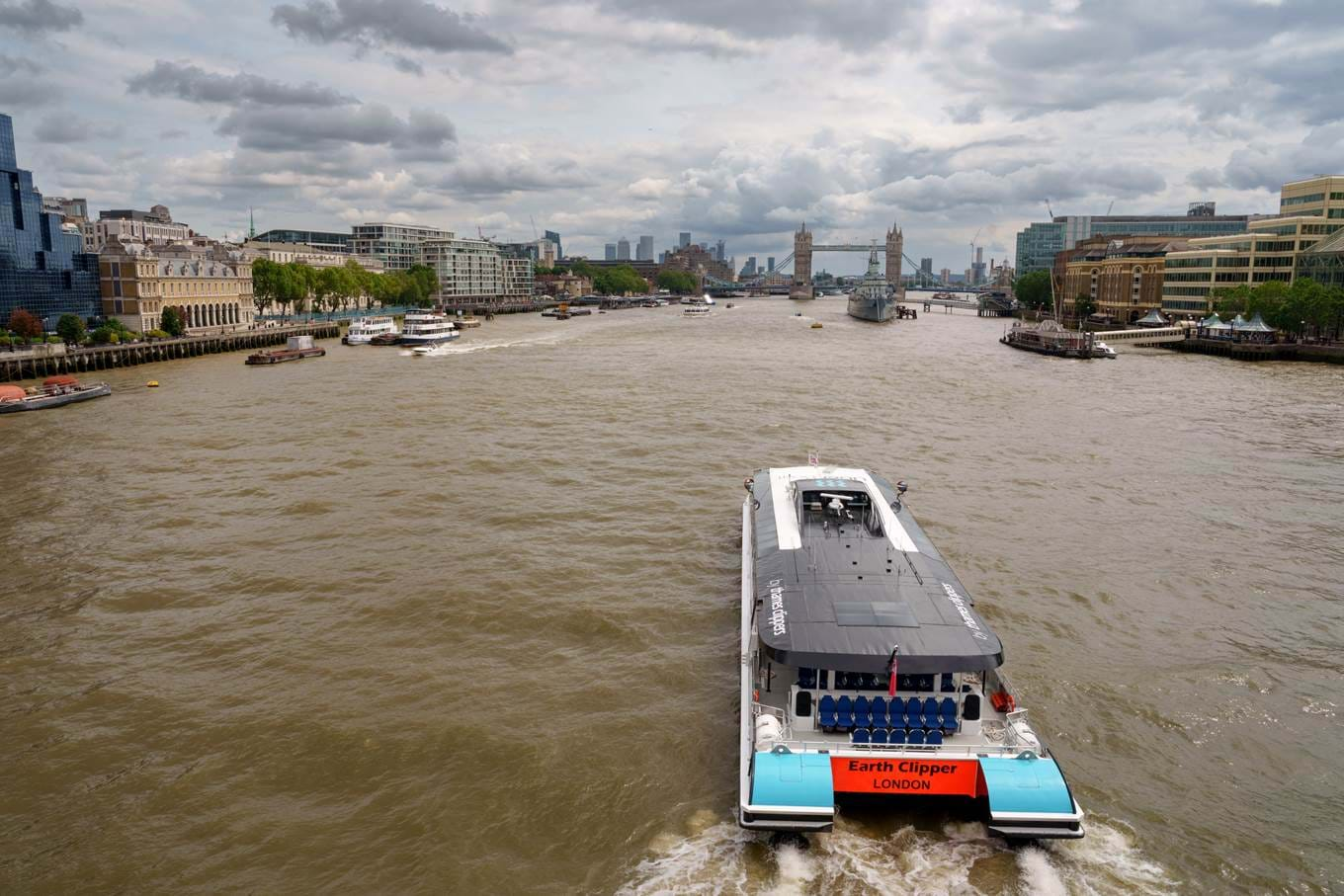
The business plans to introduce a hybrid system as a minimum with any new vessels and where possible, fully electrified or zero emission technology. In addition to the three hybrid catamarans, work is under way to deliver London’s first fully electric Zero Emission Cross River Ferry between Canary Wharf and Rotherhithe by the spring of 2025 – the first of its kind in the UK. The company’s plans to 2030 include an investment of £70 million in new fleet.
Sean believes strongly in protecting and preserving the river Thames and the communities close to the river. For over 20 years the business has been at the forefront of innovation for the river marine sector and is committed to supporting the sustainable growth of infrastructure and economic development on and around the river to ensure its long-term importance to Greater London.
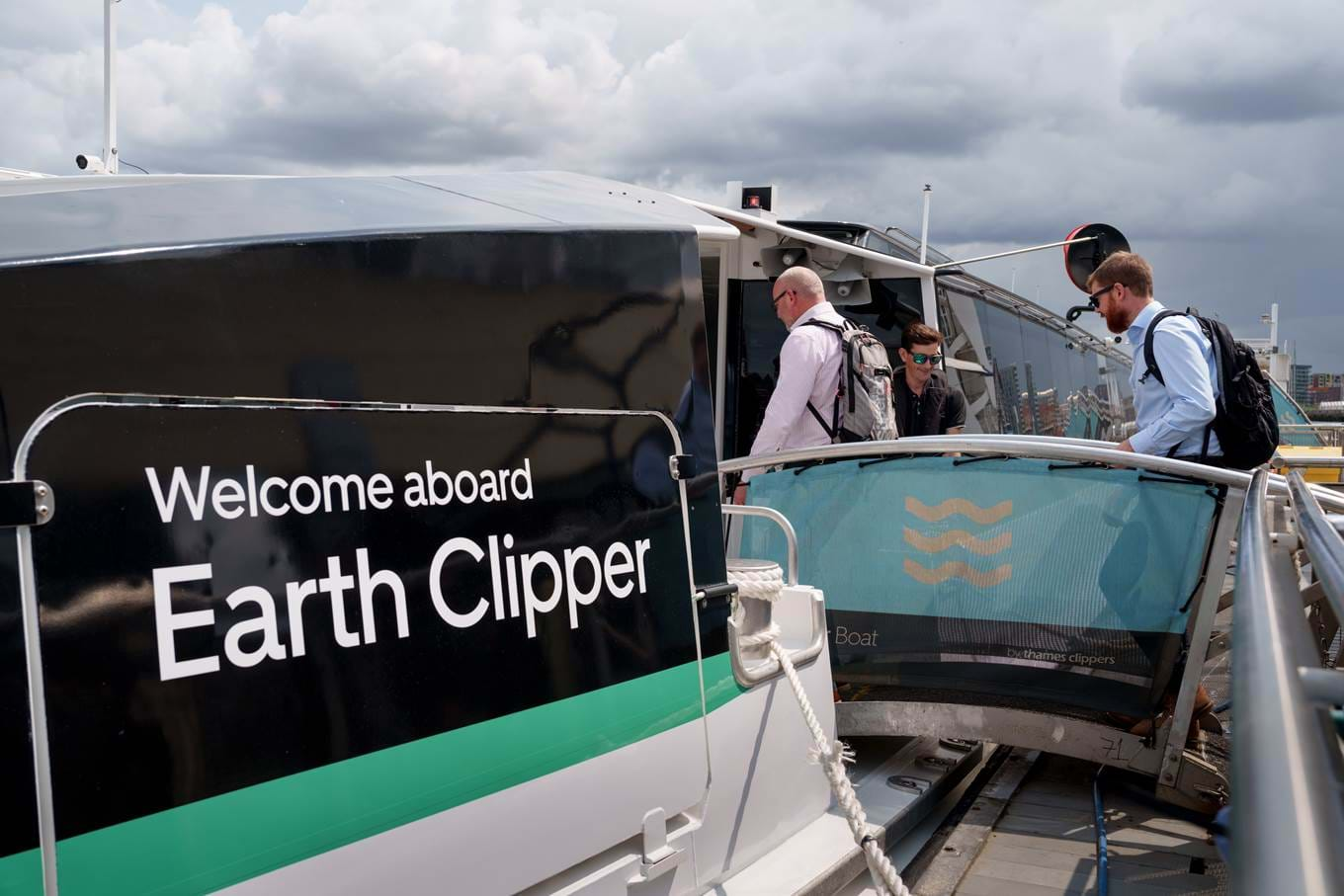
Earth Clipper was built at Wight Shipyard Co in East Cowes on the Isle of Wight, where the two sister vessels are currently being completed. An investment that has been transformational and significant for the local economy on the Isle of Wight, with 65 people building the boat over the past year and 14 apprentices involved.
Uber Boat by Thames Clippers offers services that run as far east as Barking Riverside and out to Putney in the west. The business is now in its 24th year of operation and in 2023 alone, will carry over 5 million commuters and visitors through London on the river.



